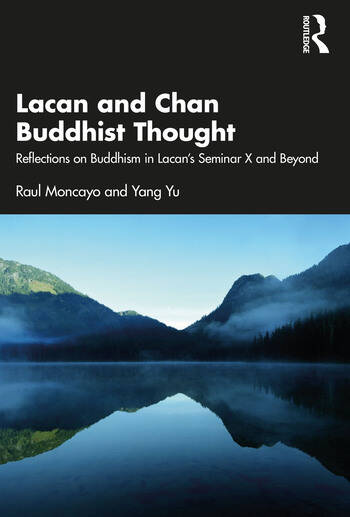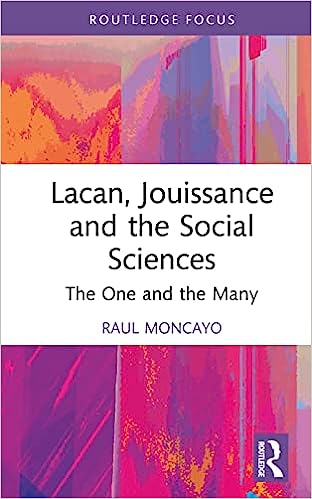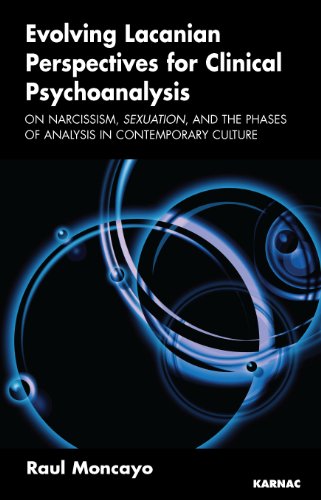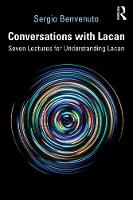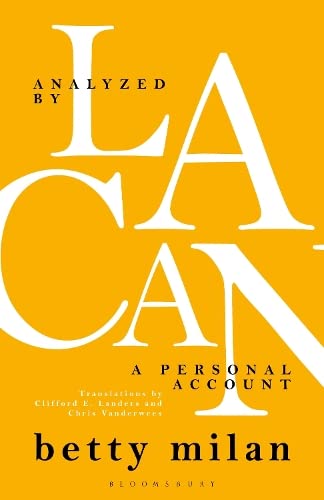The Real Jouissance of Uncountable Numbers: The Philosophy of Science within Lacanian Psychoanalysis

Book Details
- Publisher : Routledge
- Published : March 2015
- Cover : Paperback
- Pages : 240
- Category :
Lacanian Psychoanalysis - Catalogue No : 35627
- ISBN 13 : 9781782201717
- ISBN 10 : 1782201718
Also by Raul Moncayo
There are currently no reviews
Be the first to review
Lacan critiqued imaginary intuition for confusing direct perception with unconscious pre-conceptions about people and the world. The emphasis on description goes hand in hand with a rejection of theory and the science of the unconscious and a belief in the naive self-transparency of the world. At the same time, knowing in and of the Real requires a place beyond thinking, multi-valued forms of logic, mathematical equations, and different conceptions of causality, acausality, and chance. This book explores some of the mathematical problems raised by Lacan’s use of numbers and the interconnection between mathematics and psychoanalytic ideas. Within any system, mathematical or otherwise, there are holes, or acausal cores and remainders of indecidability. It is this senseless point of non-knowledge that makes change, and the emergence of the new, possible within a system. This book differentiates between two types of void, and aligns them with the Lacanian concepts of a true and a false hole and the psychoanalytic theory of primary repression. Finally, through jouissance, the language of desire is re-joined to the formal marks of the object and the language of science. This explains the connection in Lacanian theory among logic, the Real, mathematics, and jouissance.
Reviews and Endorsements
‘Raul Moncayo and Magdalena Romanowicz’s book makes an important contribution to the field of Lacanian studies. They not only provide clear and insightful expositions of Lacan’s use of mathematics and logic but also open up crucial questions about the interrelations between psychoanalysis and mathematics. In contrast to other studies written by non-clinicians, this book stays attuned to psychoanalytic practice, showing how mathematical structures and problems are central to clinical ones. It is a rich and thought-provoking study that will interest not only Lacanian analysts and scholars but also anyone working in the area of psychoanalysis and epistemology.’
— Darian Leader, author and psychoanalyst; member of the Centre for Freudian Analysis and Research and of the College of Psychoanalysts - UK.
‘In this highly original book, the authors demonstrate that Lacan’s intermittent recourse to mathematical formalisation was not a quirky flight of fancy designed to enhance the scientific legitimacy of psychoanalysis, but something integral to his detailed investigation of the objects of psychic reality. Moving effortlessly between concrete clinical observations and more abstract epistemological considerations, this book is nothing less than mind-blowing, and it constitutes both an innovative contribution to the theory of Lacanian psychoanalysis and a fascinating outlook on what psychoanalysis may add to contemporary debates in the philosophy of science.’
— Dany Nobus, Professor of Psychology and Psychoanalysis, and Pro-Vice-Chancellor at Brunel University, London; Chair of the Freud Museum, London
‘Ludwig Wittgenstein famously said, “To learn from Freud, you have to be critical.” Much the same can be said of Jacques Lacan’s oeuvre. This wonderful volume provides a rigorous scaffolding to help us penetrate Lacanian density. Using mathematics and clinical experience as a basis, the authors lead us through Lacan’s antisystemic tradition. Their effort enables us to approach one of the most influential French thinkers of the last century. Our efforts will be rewarded by reaching a deeper understanding of how Lacan manages to radically critique reductionism in psychiatry while expanding the non-reductionist revolution of Freud and psychoanalysis.’
— Dr med univ Hans Steiner, Porfessor Emeritus of Psychiatry, Behavioral Sciences and Human Development at Stanford University, California
About the Author(s)
Raul Moncayo is supervising analyst, founding member, and faculty of the San Francisco Bay Area Lacanian School of Psychoanalysis (LSP). He has a private practice of psychoanalysis, psychotherapy, supervision, and consultation. He is visiting professor and adjunct faculty both in the US and other countries. Dr Moncayo is former director of training for a large psychiatric clinic for the City of San Francisco, and the author of five books and multiple papers published in professional journals.
Magdalena Romanowicz is an adult and child and adolescent psychiatrist currently on staff at the Elliot Hospital in Manchester, NH. She graduated from her adult psychiatry residency at the Mayo Clinic in Rochester, MN and completed her child and adolescent psychiatry fellowship at Stanford University, CA. Her clinical and research interests include applications of different mathematical models in psychoanalysis.
Customer Reviews
Our customers have not yet reviewed this title. Be the first add your own review for this title.
You may also like
Evolving Lacanian Perspectives for Clinical Psychoanalysis: On Narcissism,...
Raul Moncayo
Price £36.99
Clinical Encounters and the Lacanian Analyst: Who's your Dora?
Dries Dulsster
Price £20.69
save £2.30



